Finding a quiet, comfortable and private technology enabled workspace on the go is no easy feat. Zenspace CEO Mayank Agrawal discuss the challenges of finding your zen in a noisy world and introduces concepts to help solve this problem, as well as maximizing use of underutilized space.
VIEW PRESENTATION:
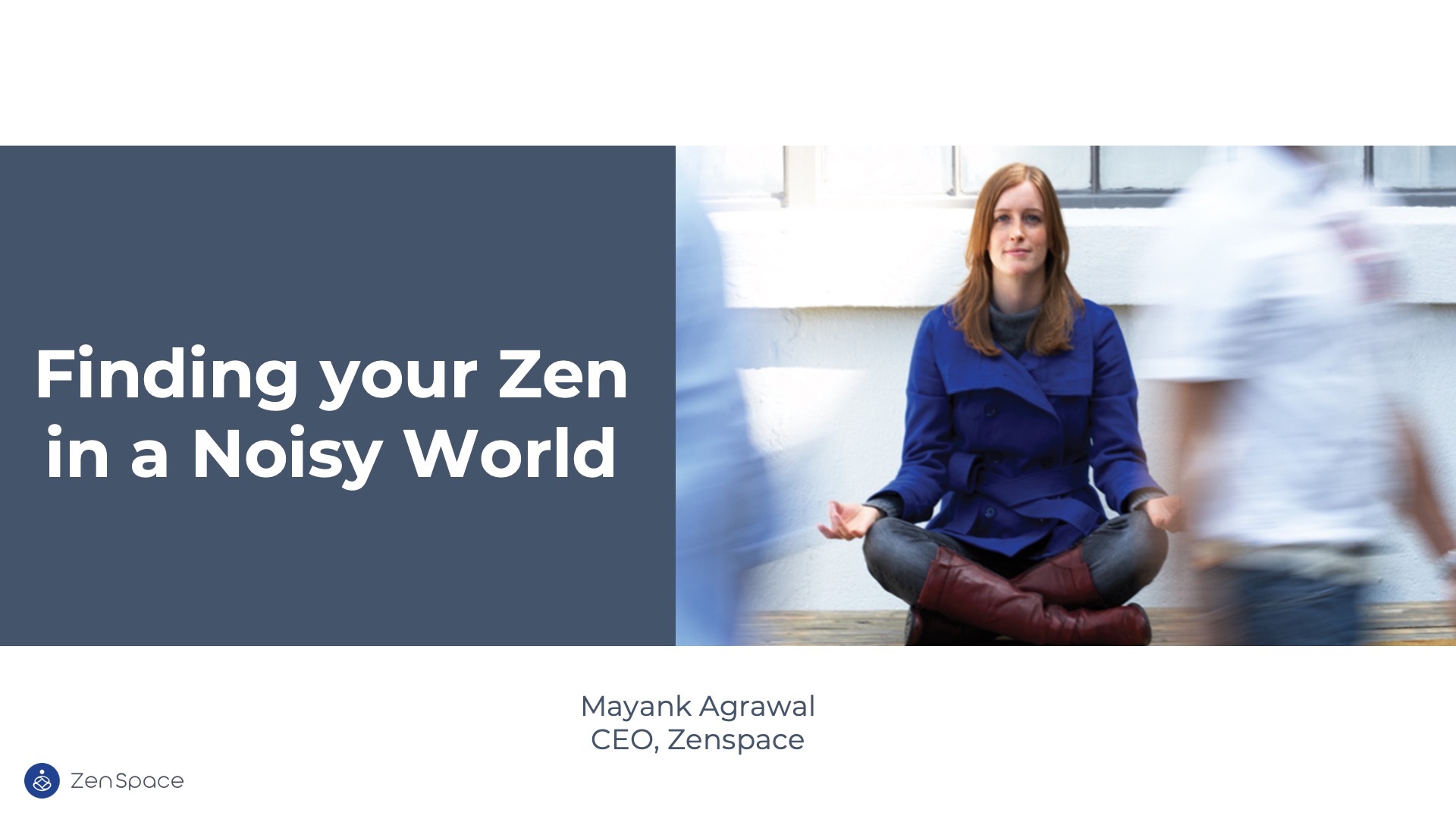
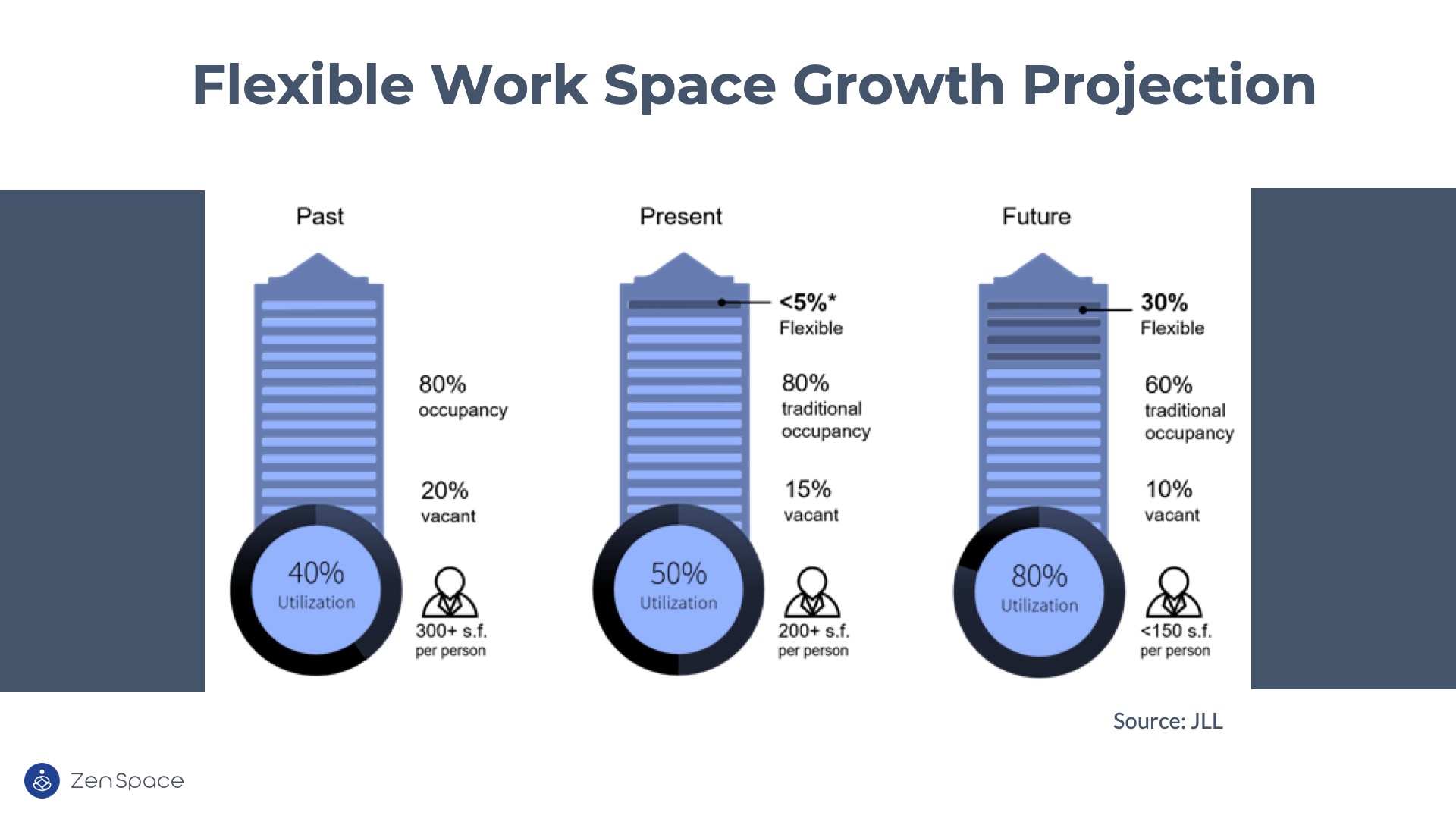
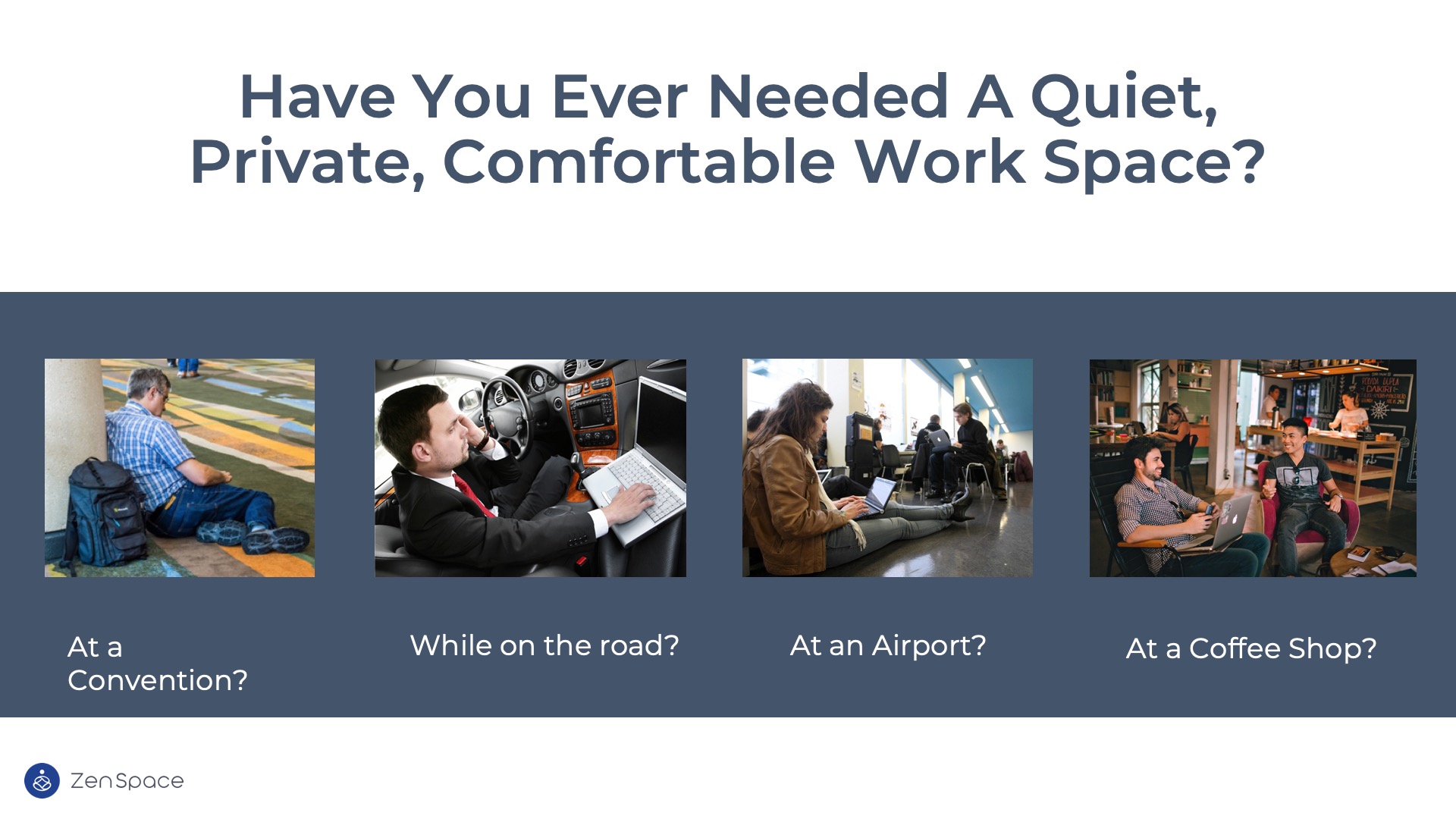
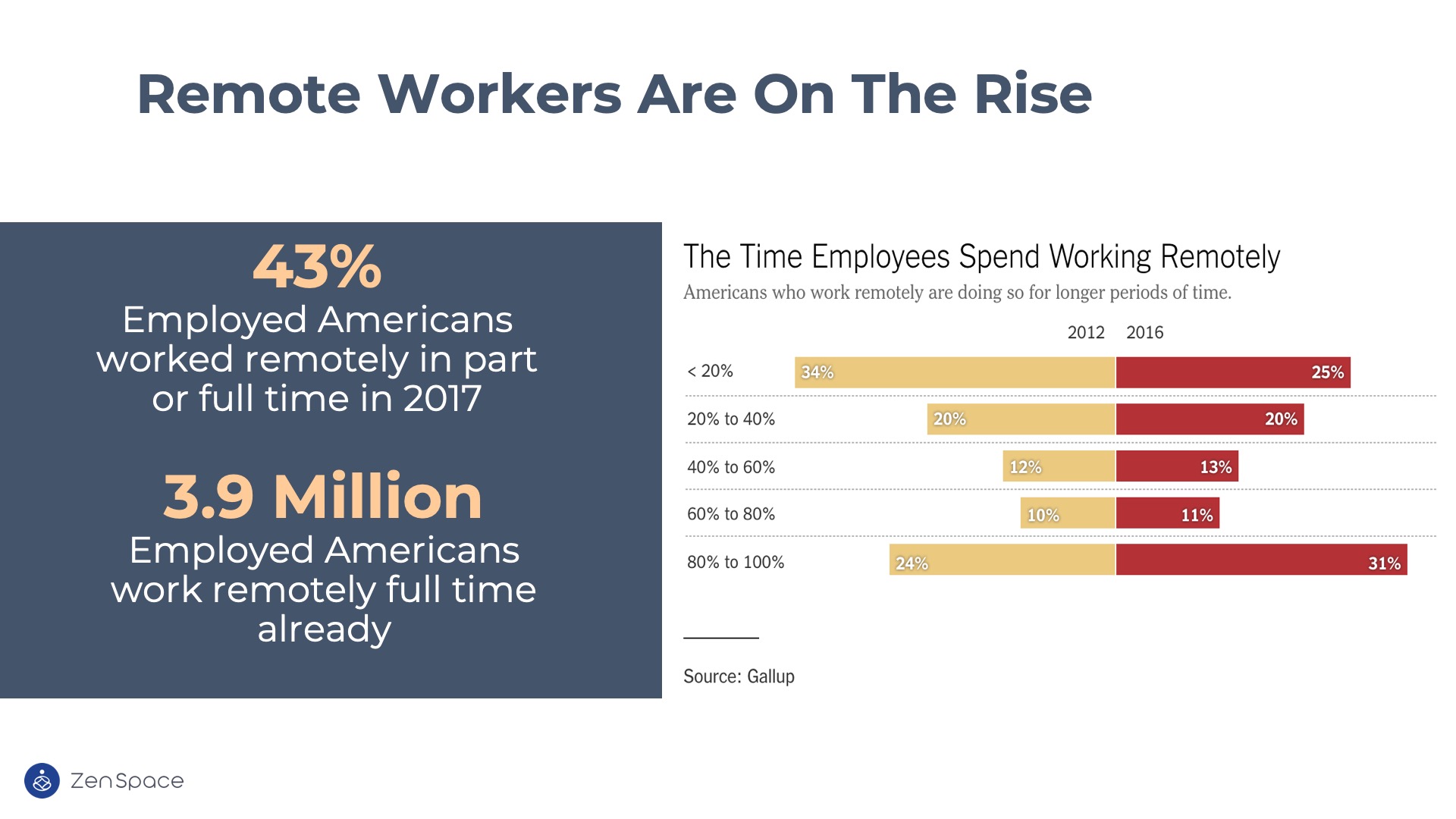
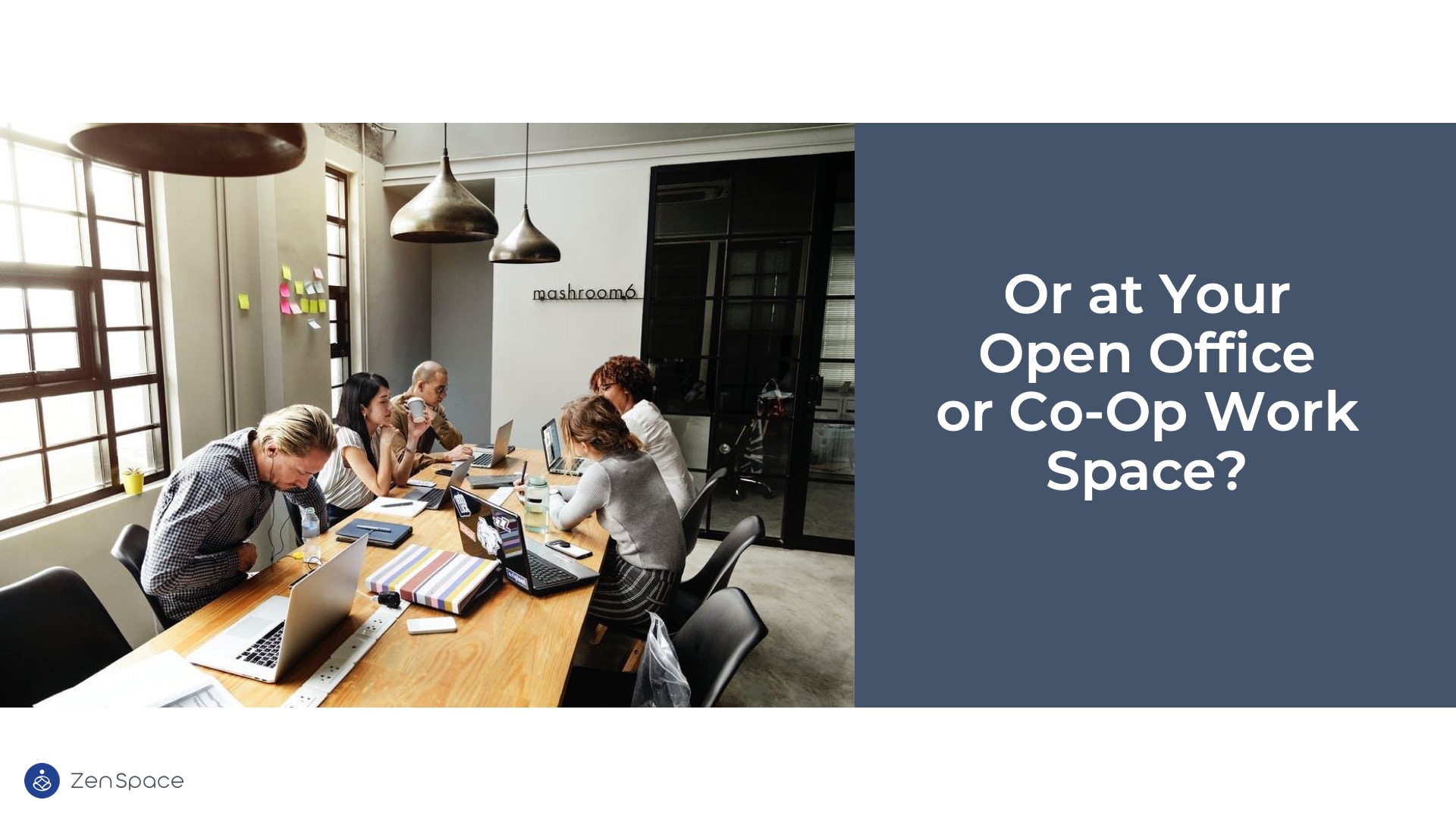
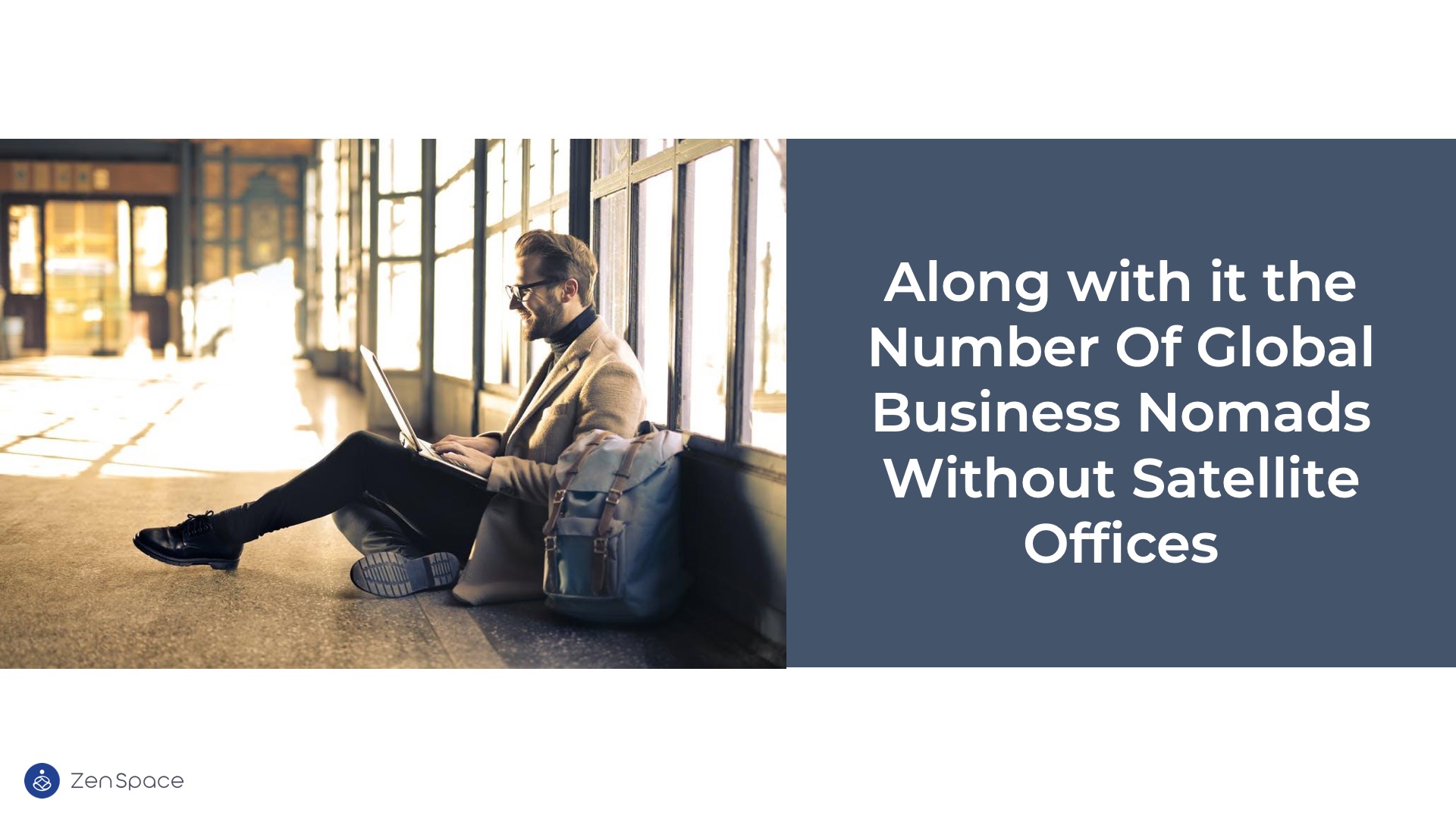
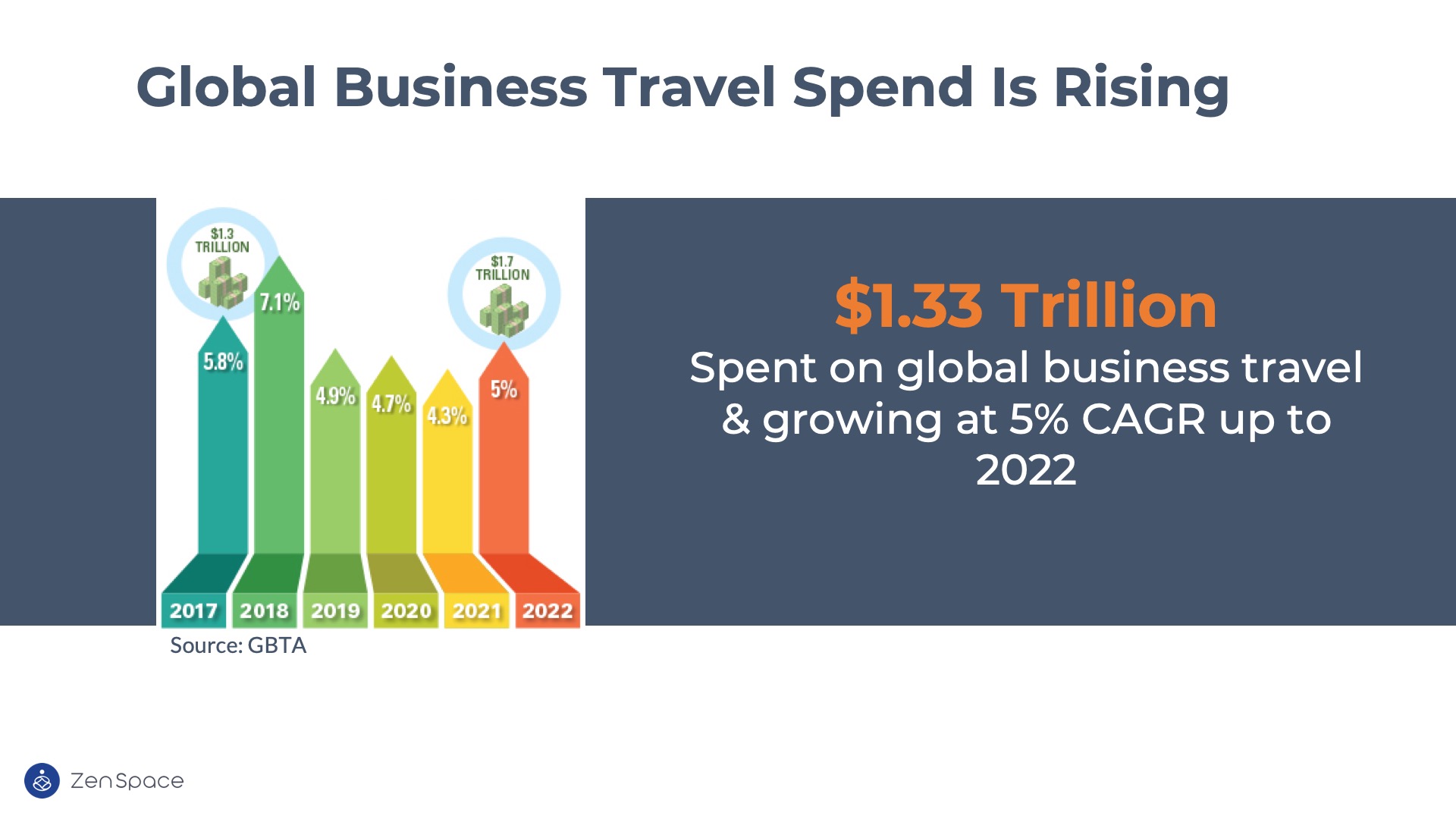
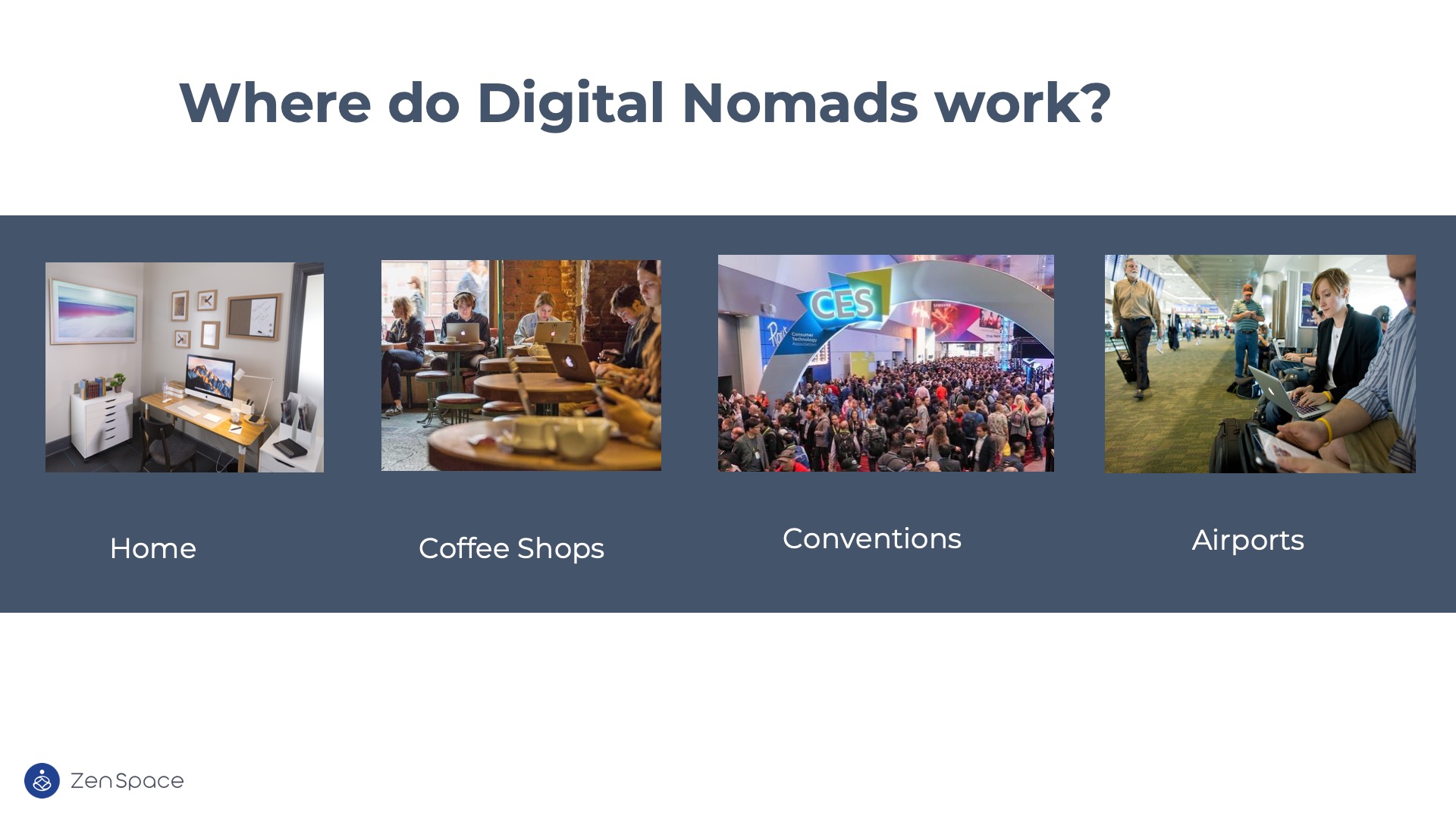
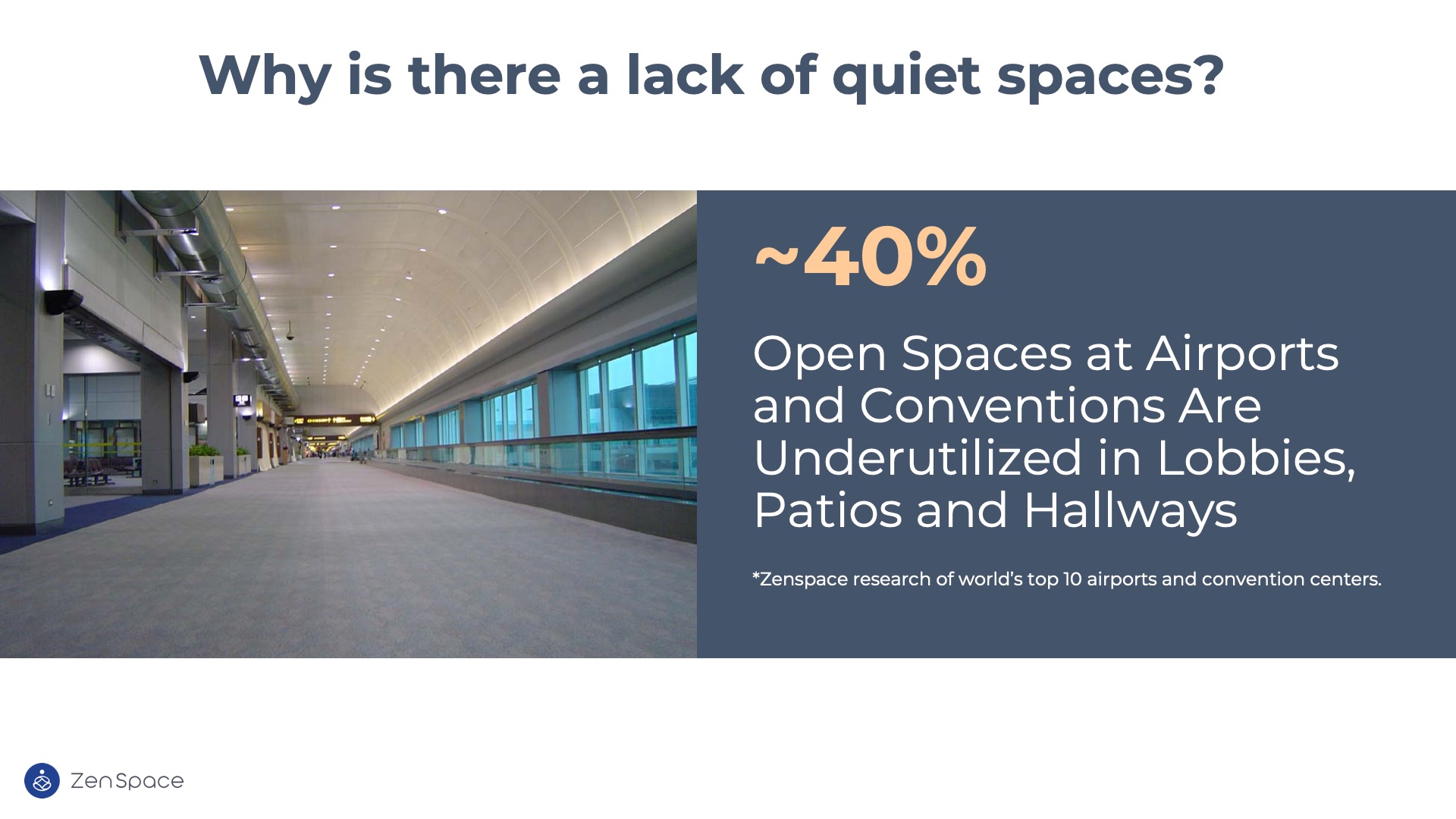



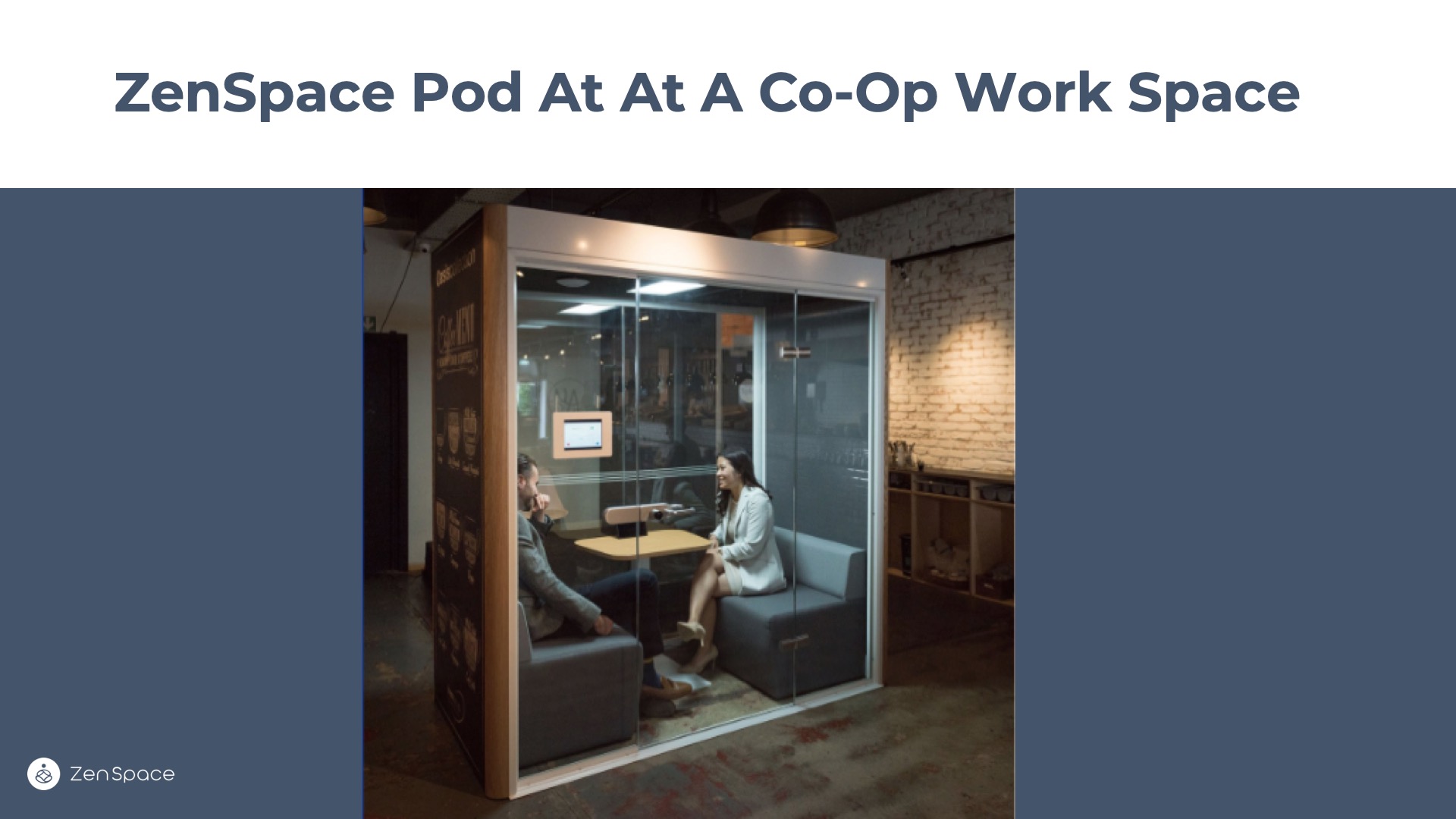

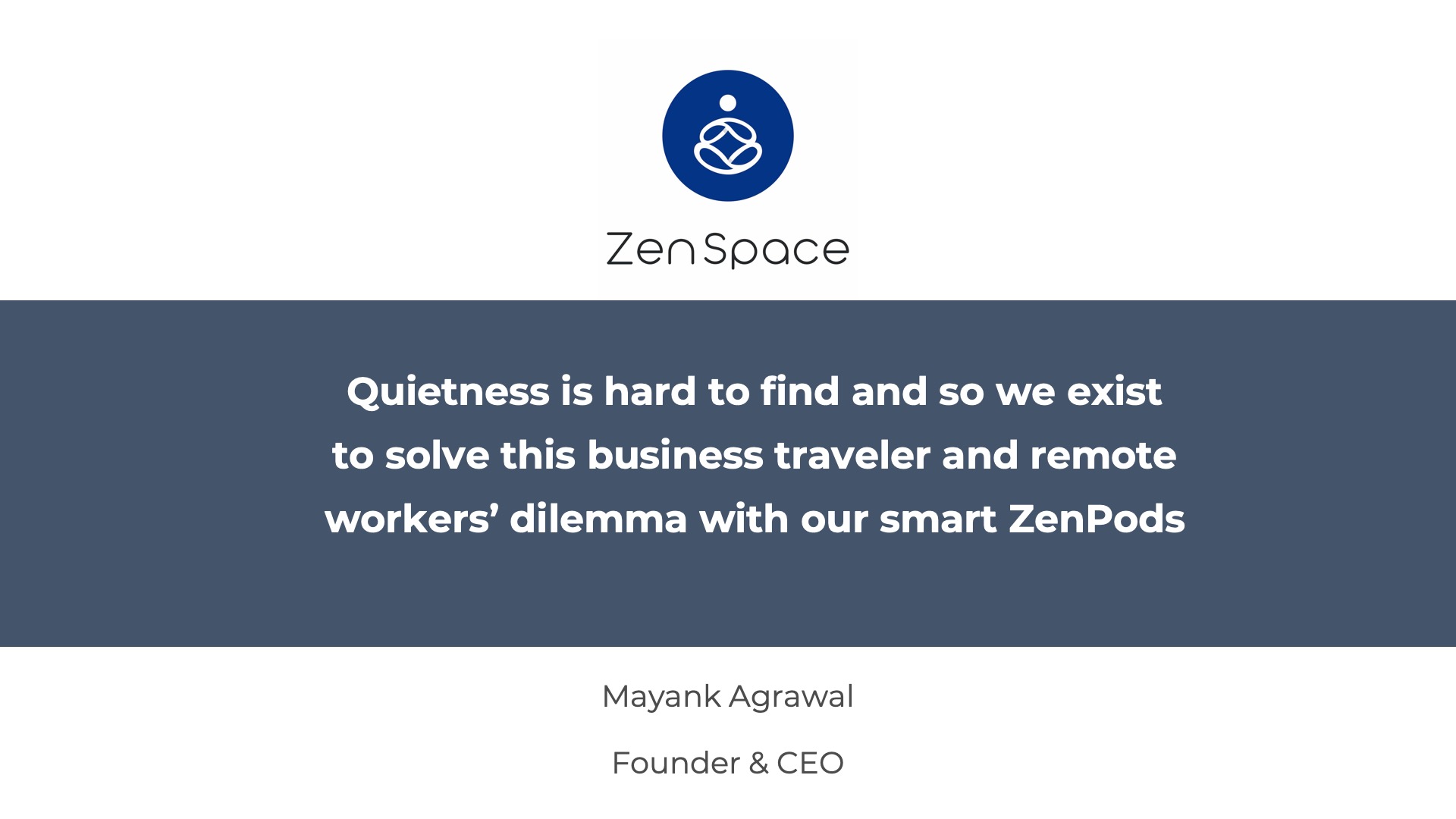
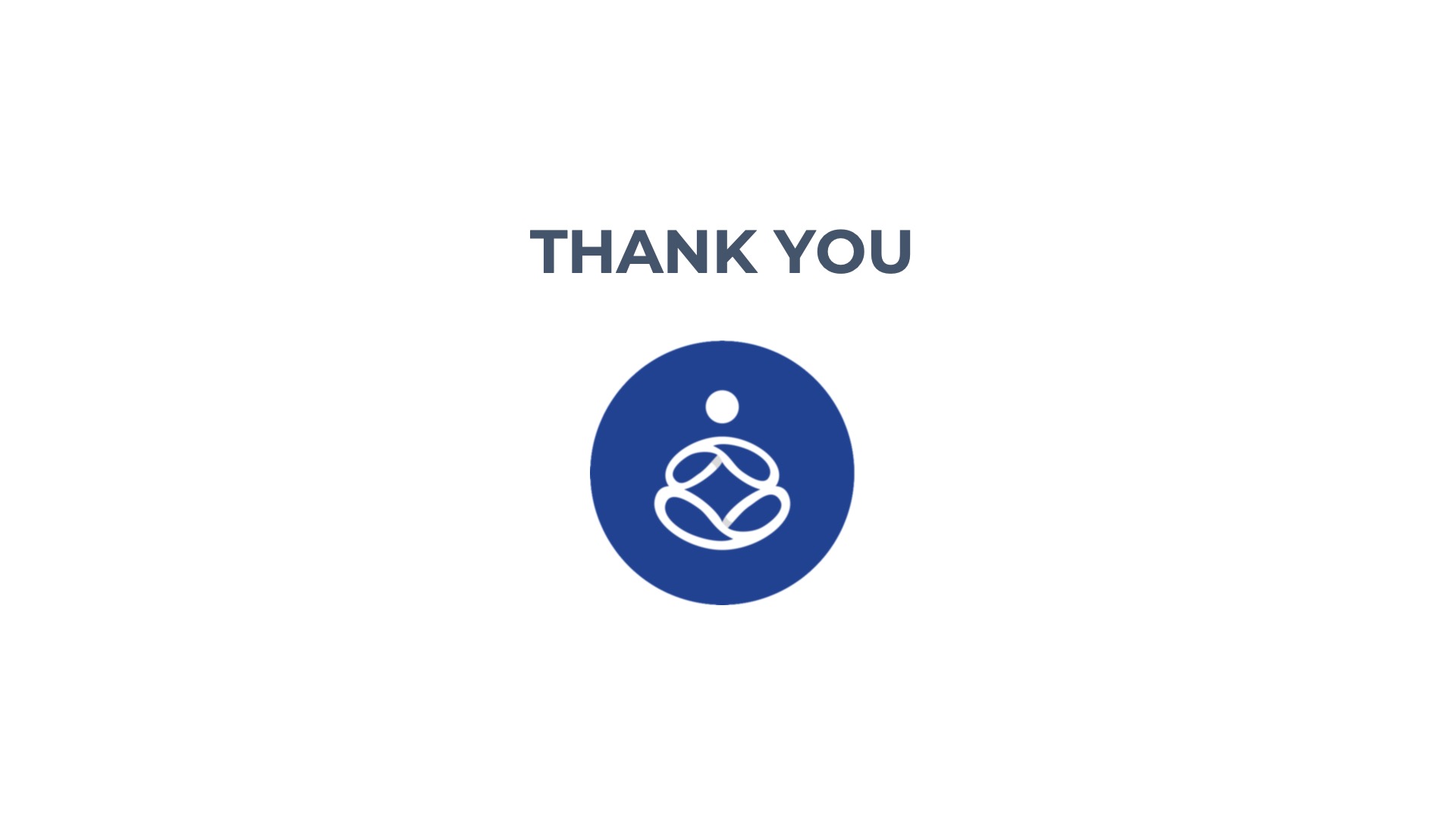
VIDEO TRANSCRIPT:
Hi everyone My name is Mayank Agrawal. I'm the founder and CEO of Zenspace. Today I want to talk about finding your zen in a noisy world. Zen to us stands for that quite, private comfortable moment that you need to conduct your business. It's the place where you can actually go and meet someone, take a video conference call or just focus on what you are doing but without the distraction of noise. Building on that, I'm gonna establish in this presentation through statistics, why is this a big need at this point in time. I will also talk about the lack of quietness or like lack of Zen spaces in public spaces like airports and conventions. I will also talk about what is Zenspace doing to address that need.
This was my life last ten years, working in a technology sales for last almost a decade. I used to go to conventions almost every quarter and now after 3 o'clock when I'm tired my legs give up this is what I used to do, find a little quiet little space where I can sit and do some work. I used to take my conference calls with my boss who wants to do a sales review when I'm traveling inside a car by turning on my hotspot and also at the airport. As you can see I mean whenever I travel I mean I have two hours waiting for the next United flight. Even at the open office layouts it's very interesting in the last decade. We talked about that the offices should be more open. There should be more collaboration and open office layout became the cool thing. But it's a paradox, suddenly the new research and new studies from Harvard and from many of the big magazines they are actually talking about the lack of privacy in open offices.
But what can the facility managers do now that they have invested billions and billions of dollars to set up those open open offices but there is a lack of privacy for taking a phone call taking a even topic to a remote workers which are outside the country switching onto some staggering numbers and some statistics which are my favorite while doing research for Zenspace. We came across this number - Global Business Travel in 2017 alone was $1.33 trillion. It's been growing at a rate of 5 percent on an average for the last seven years after we came out of the big dip. And it's growing faster than ever. By 2022 it will hit $1.7 trillion almost the size of a big country. On the other hand. Flexible work space is growing. We all know what is the valuation of we work today. We all know workspace as a service is actually evolving. How can you actually refactor your space so it's flexible is reusable? It's not an office space where you have a permanent office but it's reusable by another other companies simultaneously.
That's what flexible work space is all about. JLL did research as in 2017 five percent of the work space has already been converted into flexible thanks to companies like Regus and WeWork the trend will continue and it will become 30 percent in future. We are talking about trillions of dollars of commercial real estate here. The third number which I would like to establish is remote workers in North America 40 percent of employed Americans last year alone work either in part time or full time outside their offices, remote workers. 3.9 million employed Americans work full time outside their office. They did not have dedicated offices and these are freelancers consultants. These are photographers, videographers, architects, these are sales executive, C-level executives of large companies. We call them digital nomads. Digital nomads are those people who don't have a dedicated office but they work outside. And how do the work is what we are trying to address at Zenspace. Most of the time you have some privacy and quietness there. But when they go out in coffee shops and conventions and airports that's where the big problem is.
There is space. Space is not a problem, we talk about real estate being prime. We talk about you know, how can we actually create more space out of space? There is space out there, and we actually did this while setting up Zenspace. We did research of top 10 airports and convention centers across the world, and staggeringly, 40 percent of that space is underutilized. When I call them underutilized, they look like this. They’re the the lobby, the patios, the hallways. Las Vegas commercial center as you know, the convention capital of the world, where you have consumer electronics show and shows like anybody, 4 million square feet 2.2 million square feet of which is actually exhibit halls and we're just the remaining of that is hallways lobbies and bodies. What do you do there actually? What can we do to convert those spaces? What can we do to convert those spaces without a huge transformational construction cost? What can we do to convert them into private workspaces?
We actually combined three experiences. We started with the on demand ubiquity aspects of Uber that my care is available within five minutes of me pushing that button. Wherever I am. Then the concept of WeWork which is workspace as a service. Workspace as a service meaning, how can you you reuse the existing space and share it with people? One of my favorites is Starbucks. The consistency of experience attribute which comes from Starbucks. When I'm outside of my home and office and I don't know where to go. I search for Starbucks. I search for Starbucks because I know that there is a Starbucks within 15 minutes of wherever I am. I also know that I will get free Wi-Fi, I also know the coffee I want to order and I have my space there so that to me is my Zenspace until we have enough Zenspaces and that's the consistency of experience, that consistency and guaranteed experience is very important. Uber does not offer that vehicle does that but it's not pervasive enough. Starbucks is pervasive. We combine those in our product called Zen Pod.
What is a Zen Pod? Zen Pod is quite comfortable and private technology enabled workspace which can be set up and as small as 10 square feet the size of a phone booth. And we have three different form factors for one person to person and four person and can be can be set up in less than two hours. Costs are really less than half of what you would spend on construction of a room and they are private, there are tech enabled that can be operated with a mobile app. You can actually download the Zenspace app and book that little room for yourself, pay for it and open the door yourself. It also offers a huge opportunity for generating revenue out of underutilized spaces. Through micro leasing and advertising it’s a big source of revenue. These are some visuals of how a looks like we play is what we have on offer boards upcoming in fairly large shopping mall in San Francisco where we are doing a pilot one of our parts has been placed in a coworking space as you can see here and we the biggest success we actually see and biggest need, we talked about conventions and this is where actually where we had this in one of the big events in Las Vegas. This is hard to find. The Zen moment is hard to find. And so we exist to solve the business traveler and remote workers problem. That's about Zenspace. Thank you so much.


